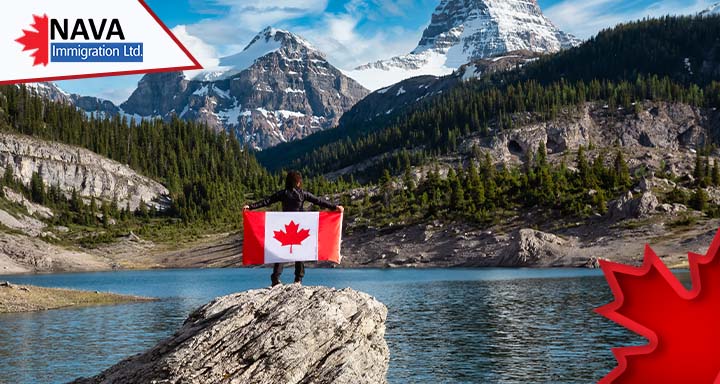Things to know before Immigrating to British Columbia
British Columbia is Canada’s westernmost province, where immigrants from worldwide prefer to work, study, and settle. Immigration to a completely new country or province is exciting but daunting at the same time, as you should know everything concerning the nation or the province to facilitate your immigration and settlement. Thus, Immigrants interested in moving to British Columbia must consider a few things before making their final decision. Discover things to know before Immigrating to British Columbia.
British Columbia- A Popular Canadian Province Among Immigrants
BC is the third-largest province in Canada and home to almost one million newcomers from across the globe.
The province includes about 40 regional parks and six national parks for inhabitants and visitors to enjoy and feel connected to nature. This is why British Columbia is frequently regarded as among Canada’s naturally exquisite provinces.
BC’s diverse geography, which includes rocky coastlines, sandy beaches, lakes, mountains, forests, desserts, and grassy plains, makes it an attractive destination.
It is additionally recognized for its milder weather patterns, as it enjoys four different seasons without extreme cold and hot temperatures that are common in other Canadian regions.
Let’s dive into the essential things concerning British Columbia that you must know before moving to the province.
Things to know before Immigrating to British Columbia
This section will highlight the critical things in BC that you must consider before moving to the province. These include housing prices, transportation, education, and healthcare, which can have a significant impact on your lives in the province. Discover the essential things to know before Immigrating to British Columbia.
Healthcare Facilities in British Columbia
In Canada, a universal healthcare model finances public healthcare. This means that resident taxes in Canada are combined to fund healthcare services, enabling Canadians to access these services without direct charges at the point of use in British Columbia and throughout Canada.
To be eligible for public healthcare services in the province through the Medical Services Plan (MSP) of British Columbia, newcomers have to wait at least two months and the remainder of the month they landed in the province.
After becoming eligible for public healthcare services, all newcomers to the province can avail of the authorized medical services if they have a valid health card.
Typically, with a health card, the residents of British Columbia can access certain healthcare services free of charge. However, they still have to pay for specific treatments and medications. Such situations highlight the importance of having private health insurance.
Therefore, you must also learn about private health insurance in British Columbia, which can cover a lot of additional costs.
Taxes in British Columbia
In British Columbia, sales tax includes a Provincial Sales Tax (PST) as well as the federal Goods and Services Tax (GST). Currently, BC has 7% PST and 5% GST.
In the province, the income taxes range between 20% and 53%, which depends on the individual’s tax bracket. The marginal tax rate rises in conjunction with the income growth and increase in the tax bracket. Be sure to gain additional details concerning the taxation in British Columbia.
Housing facility and its prices in BC
British Columbia has one of the most developed housing markets in the country. Notably, the available properties and their prices in every province and territory, including British Columbia, typically depend on various factors. These include your desired property location, property type, and family size.
Recently, rentals.ca released a Nationa Rent Report for August 2023. As per the report, the following bedroom costs represent the average rent for one-bedroom and two-bedroom housing in BC’s three largest Census Metropolitan Areas (CMAs) by population, including Vancouver, Victoria, and Kelowna.
Average One-Bedroom Price: Vancouver ($3,013), Victoria ($2,054) and Kelowna ($1,947)
Average Two-Bedroom Price: Vancouver ($3,918), Victoria ($2,753) and Kelowna ($2,790)
This pricing can give you an idea of housing in British Columbia and help you determine your preferences.
Transportation in the Province
In British Columbia, around 73% of the residential areas in its three largest CMAs, including Vancouver, Victoria, and Kelowna, are situated less than 500 meters from a public transportation access point.
In particular, this number is nearly 90% for residence areas in Victoria and Vancouver, whereas for Kelowna, it is 73.7%.
This means that in these three areas in British Columbia, a high percentage of people live close to public transit areas.
Besides this, the public transportation options in the province differ from city to city. Nevertheless, most cities in BC have public commuting options like the SeaBus, SkyTrain, and buses.
Other than these, many residents in British Columbia use other transiting options like cars, vans, or trucks as their primary mode of transportation.
If you are a newcomer to British Columbia, you may want to know whether you can drive on your own in the province. The following will help you clarify your confusion:
- If you are a newcomer in British Columbia and above the legal driving age, you are allowed to use your home country’s valid driver’s license in the province for the first 90 days.
- After the conclusion of the 90-day period, you must apply to the provincial government to obtain your British Columbia driver’s license.
Work Opportunities in British Columbia
The province never disappoints newcomers when looking for work opportunities in British Columbia. The province is home to diverse economic sectors that offer newcomers numerous employment opportunities in major industries.
British Columbia has industries in the following sectors supporting its economy:
- Manufacturing
- Natural Resources
- Tourism and Hospitality
- Technology and Innovation
- Film and Television Production
- Construction and Real Estate
- Agriculture and Food Production
British Columbia has an Immigrant Employment Council of BC, a province-based organization that aims to connect talented immigrants with employers. They provide resources, programs, and tools to assist new immigrants in searching for jobs in the province.
Education in the Province
Education is also among the essential things to know before Immigrating to British Columbia to ensure you or your close ones have access to quality education. Children in British Columbia must be a part of the province’s education system from the age of six until they pass high school.
British Columbia has an outstanding public education system, with k-12 students unfailingly attaining top-ranking status in international examinations.
Besides this public education system, the province also maintains a network of private, independent schools offering both every day and boarding programs. Parents have to pay an additional tuition fee to enroll their children in private schools in the province.
Besides this, BC has more than 275 distinct, popular Designated Learning Institutions (DLIs) for post-secondary education. So, if you are looking to enroll in post-secondary programs, BC offers you a valuable chance.
However, it’s notable that in British Columbia, among all, only a single DLI offers admissions to international students and programs that are acceptable for a Post Graduate Work Permit (PGWP) after its completion.
Many DLIs in the province allow securing a PGWP after completing specific education programs, except for some programs.
A PGWP allows individuals to gain work experience in Canada. With at least one year of Canadian experience, a PGWP holder becomes eligible for various immigration pathways for Canadian permanent residence.
Many of these educational programs allow individuals to gain Canadian work experience.
Services for Newcomers in British Columbia
In British Columbia, similar to the remainder of Canada, services for newcomers include a variety of assistance to facilitate their establishment. These range from language training, employment help, and daycare to community and cultural events, legal help, etc.
The settlement services in British Columbia are handled under a program called the British Columbia Settlement and Integration Services (BCSIS).
Typically, qualifying criteria for newcomers’ services depend on the service provider and other factors. You may be eligible for certain services, but not all, depending on your residential location, legal status in Canada, and more.
You can get more details regarding the BCSIS and settlement services across British Columbia on the official website of the province.
British Columbia- A Popular Immigration Destination in Canada
So, these are some of the valuable things to know before immigrating to British Columbia to make an informed choice. You can compare the benefits with other provinces or broaden your understanding of British Columbin immigration even more before making a final decision.
Overall, Canada is a popular immigration destination, but considering a province that offers increased benefits can act as a cherry on the cake.
Ensure that you consider these aspects of other provinces and territories, as well as available immigration pathways and your eligibility to make a sound choice, and successfully immigrate to the province of your choice with increased benefits.





